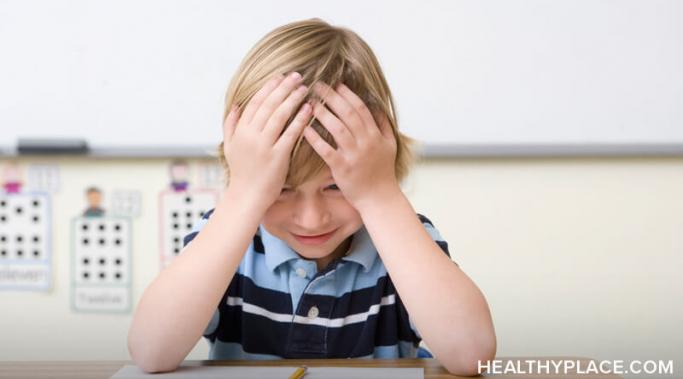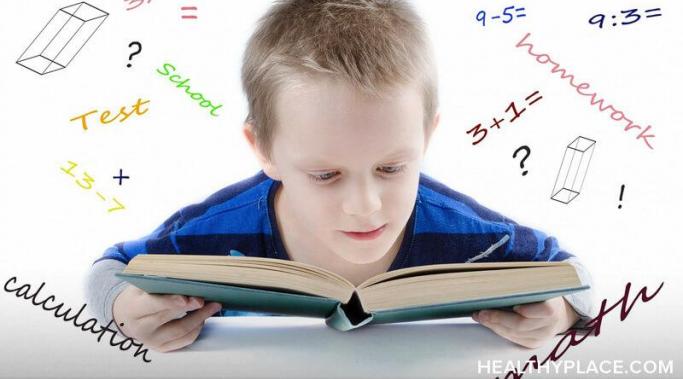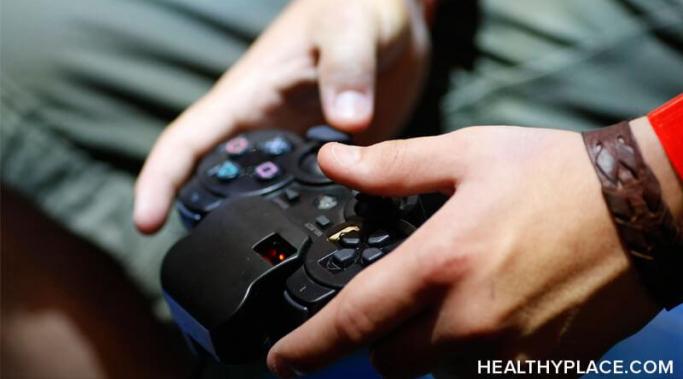After nearly two years, I am officially closing the laptop on my blog at HealthyPlace. When I started, my son had just been diagnosed with disruptive mood dysregulation disorder (DMDD). Two years later, I have filled these pages with information on how we've parented a child with this relatively new diagnosis. I've delved into his attention-deficit/hyperactivity disorder (ADHD), too, and the ways we've tried to manage the ups and downs that come with it. I've learned a lot, and I hope others have, too.
ADHD – Parenting Child with Mental Iillness
Myths about parenting a child with mental illness are harmful, so let's straighten some of them out. If your child struggles with mental illness, you've faced judgment and unsolicited advice from almost everybody. None of it compares to the judgment and fear we heap on ourselves. It's easy to get dragged down by ignorance and stigma. Debunking common myths, then, may make the journey through parenting a child with mental illness a little easier.
Parents may be surprised to hear that antipsychotic medications are a common treatment for childhood attention-deficit/hyperactivity disorder (ADHD). They're often prescribed to help children who experience intense mood swings, aggression, destructive behaviors, or self-harm. These medications can be life-changing and life-saving, but the term "antipsychotic" is so stigmatized that parents might be terrified when doctors recommend antipsychotics. Of course, always consider the risks, but also consider the benefits of using antipsychotic medications in childhood.
Back to school tips for parents of kids with mental illness will help you and your child manage the back to school season with all its excitement and anxiety. We get new clothes, supplies, and worries. When a child has a mental illness, we also have to consider psychiatric medications, whether teachers can manage behaviors, how the school handles disciplinary actions, and childcare for the days our kid is asked to leave early or gets too anxious to go at all. Below are some going back to school tips to help prepare you and your child with mental illness.
The definition of the least restrictive environment is part of the Individuals with Disabilities Education Act (IDEA). It mandates that children with disabilities should learn alongside their regular education peers as much as is safe and possible. Why is it so important that our children with mental illnesses be included in the least restricted environment?
Whether to use attention-deficit/hyperactivity disorder (ADHD) drug holidays or not is a secondary decision for doctors and parents of children with ADHD. But before you discuss ADHD drug holidays, you must decide whether to use ADHD medications at all. First, you have to manage the stigma and judgment that comes with medicating your child. Then, if you do decide on ADHD medications, you have to juggle side-effects, changes, and the complicated decision of ADHD drug holidays.
Twice-exceptional children are gifted children with mental illness, and they often get overlooked in school. A mentally ill child's problem behaviors may mask their strengths, or their behaviors may frustrate teachers so much that teachers overlook the child's strengths. These gifted kids with mental illness are twice exceptional and we should recognize them and push them as much as we do the typical gifted child.
The stress of change can be difficult for any child, but for children with emotional and behavioral disorders, the stress of change hits harder. They often can't predict their own behaviors, thoughts, or feelings, so it makes things worse when they can't predict their environment either. Life isn't very predictable, though, so how do we help our children with mental illnesses better manage the stress of change?
Attention-deficit/hyperactivity disorder (ADHD) and video games: How much screen time do you allow your child with ADHD? I ask because parents of children with ADHD have a love/hate relationship with video games. They can be a huge motivator for our kids. They provide us with rare quiet times. Yet, we're often shamed based on how much screen time our kids get. Using screens is often viewed as poor parenting. I've even been told video games cause my son's ADHD (Stigma Against Parents Who Raise a Child with Mental Illness). These days, asking me about my child's screen time will elicit the same response as asking me about my weight. I will lie about it, then I'll go home and cry.
There are mental health benefits of pets for children with mental illness. Pets can be great friends and teachers to children with attention-deficit/hyperactivity disorder (ADHD), disruptive mood dysregulation disorder (DMDD), or other mental health concerns. Plenty of research exists backing up the helpfulness of having animals in therapy, school, or at home. My son's mental health benefits from the animals in his life.









